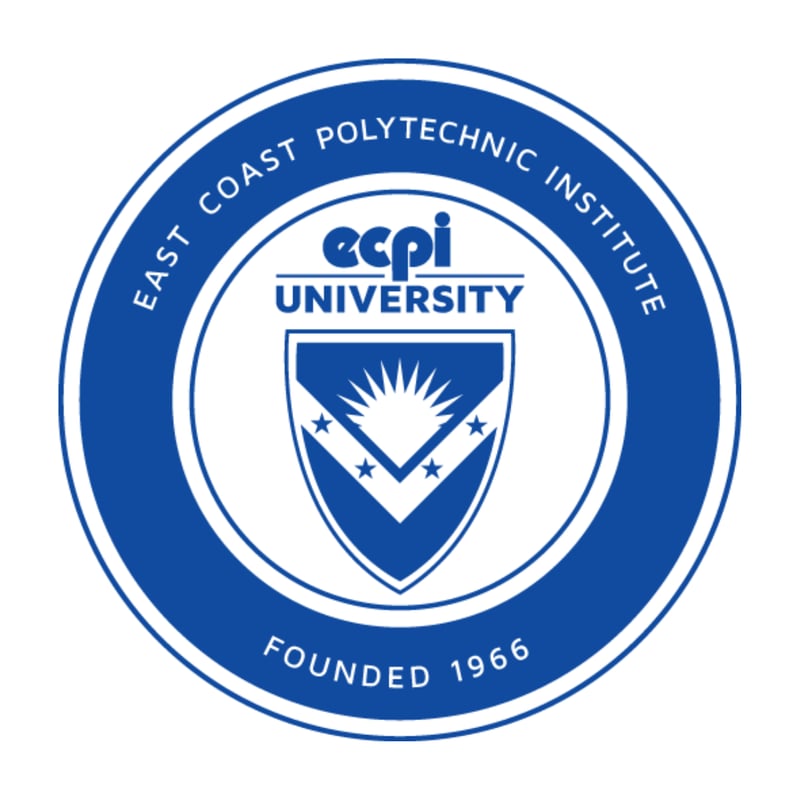
Financial aid (may be available)

No cost info

Financial aid (may be available)

Financial aid (may be available)

Financial aid (may be available)

Financial aid (may be available)

No cost info

Financial aid (may be available)

Financial aid (may be available)

Financial aid (may be available)
No cost info
Learn about the components of supply chains including supply chain networks, supply chain facilities, transportation, and inventory management as well as how emerging technologies affect them with our Supply Chain Fundamentals Certificate. These courses are perfect for learners seeking to enter the supply chain profession, as well as those who are seeking to enter supervisory roles or enter a new domain within the supply chain.
No cost info
This certificate program provides a foundation in supply chain and logistics management from both a U.S. as well as global perspective, preparing participants for professional careers with manufacturers and distributors, transportation carriers, and logistics service providers.
No cost info
American Military University (AMU) offers a logistics management certificate at the graduate level. It provides in-depth study of logistics and supply chain management with consideration of global impacts.
AMU’s online logistics certificate emphasizes transportation factors related to logistics, especially the maritime industry. The curriculum covers topics such as:
Transportation policy and planning
Transportation management and economics
Port and terminal operations
This program is an appropriate choice for those who wish to increase their knowledge of logistics and supply chain management without committing to a full degree program.
No cost info
No cost info
The online Logistics and Supply Chain Management Certificate from CCU will help you gain a deeper understanding of the processes and fundamentals within supply chain and inventory management, including purchasing and inbound logistics; material handling in distribution centers; warehousing and warehouse management; financial and inventory controls; transportation and distribution; and reverse and global logistics.
No cost info

Financial aid (may be available)

$2,730 total

No cost info

$2,625 total
Are you interested in pursuing a career in logistics? If you live in Hartford, Connecticut, you're in luck! There are several logistics classes available in and around the city that can help you gain the skills and knowledge you need to succeed in this field. In this blog post, we will explore what logistics is, the training requirements, what to look for in a class, what to expect from day-to-day classes, the certification process, how to find related jobs, and other classes you can take to further your career in logistics.

Logistics is a crucial aspect of any business or organization that involves the management and coordination of the flow of goods and services from point of origin to point of consumption. It encompasses various activities such as transportation, warehousing, inventory management, and supply chain management. A career in logistics can be rewarding and offer plenty of opportunities for growth and advancement.
Logistics is the process of planning, implementing, and controlling the efficient flow and storage of goods, services, and related information from point of origin to point of consumption. It involves coordinating various activities such as transportation, warehousing, inventory management, and supply chain management to ensure that products are delivered to customers in a timely and cost-effective manner.
To pursue a career in logistics, you will need to have a high school diploma or equivalent. While a college degree is not always required, it can be beneficial and may open up more opportunities for advancement. Additionally, many employers prefer candidates who have completed vocational training or certification programs in logistics.
When searching for logistics classes near you in Hartford, there are a few key factors to consider:
Accreditation: Ensure that the class you choose is accredited by a reputable organization. This ensures that the program meets certain standards of quality and will provide you with the necessary skills and knowledge.
Curriculum: Review the curriculum of the class to ensure that it covers all the essential topics in logistics, such as transportation, warehousing, inventory management, and supply chain management.
Hands-on Experience: Look for classes that offer hands-on training or internships. This will provide you with practical experience and allow you to apply the knowledge you have gained in a real-world setting.
Instructor Qualifications: Research the qualifications and experience of the instructors who will be teaching the class. They should have industry experience and expertise in the field of logistics.
Class Size: Consider the class size and student-to-instructor ratio. Smaller class sizes often allow for more personalized attention and interaction with the instructor.
Logistics classes typically cover a range of topics related to the field. Here are some examples of what you can expect from day-to-day classes:
Introduction to Logistics: Learn about the basics of logistics, including its importance, key concepts, and industry trends.
Transportation Management: Understand the various modes of transportation and how to effectively manage the movement of goods.
Warehousing and Inventory Management: Explore the principles of warehouse operations and inventory management, including storage, picking, packing, and distribution.
Supply Chain Management: Gain an understanding of supply chain management and how it impacts logistics operations.
Technology in Logistics: Learn about the latest technologies used in logistics, such as warehouse management systems and transportation management systems.
Problem Solving and Decision Making: Develop critical thinking and problem-solving skills to effectively address challenges in logistics operations.
Obtaining a certification in logistics can demonstrate your expertise and dedication to the field. The certification process typically involves the following steps:
Education: Complete the required coursework or training program in logistics.
Experience: Gain practical experience in the field through internships or entry-level positions.
Exam: Pass a certification exam, which tests your knowledge and understanding of logistics principles and practices.
Continuing Education: Maintain your certification by participating in continuing education courses or activities to stay updated with the latest industry trends and best practices.
Once you have completed your logistics training and obtained any necessary certifications, you can start looking for related jobs. Here are some strategies to help you find job opportunities in the field:
Online Job Boards: Utilize job search websites and online job boards to browse and apply for logistics positions.
Networking: Connect with professionals in the logistics industry through networking events, career fairs, and online platforms such as LinkedIn. Networking can help you discover hidden job opportunities and learn from experienced professionals.
Industry Associations: Join industry associations related to logistics, such as the Council of Supply Chain Management Professionals (CSCMP), to access job boards, networking events, and other resources.
Company Websites: Visit the websites of logistics companies in your area to explore job openings and submit your resume directly.
Once you have established a career in logistics, there are several other classes you can take to further enhance your skills and knowledge. Some examples include:
Advanced Supply Chain Management: Dive deeper into the intricacies of supply chain management and explore advanced strategies and techniques.
Lean Six Sigma: Learn how to improve efficiency and eliminate waste in logistics operations using Lean Six Sigma methodologies.
Project Management: Develop project management skills to effectively plan and execute logistics projects.
International Logistics: Gain a comprehensive understanding of international logistics, including customs regulations, international trade, and global supply chain management.
Data Analytics in Logistics: Explore how data analytics can be applied to logistics operations to optimize performance and make informed decisions.
If you're interested in pursuing a career in logistics, there are plenty of opportunities in Hartford, Connecticut, to gain the necessary skills and knowledge. By attending logistics classes and obtaining relevant certifications, you can position yourself for success in this field. Remember to research the class options available, consider the curriculum, instructor qualifications, and hands-on experience opportunities. Dreambound is a valuable resource for finding vocational training programs, including logistics classes, to help you kickstart your career. Don't hesitate to explore other vocational classes and career options on the Dreambound platform as well. Good luck on your journey to becoming a logistics professional!
Dreambound has an extensive collection of guides that dive deep into how to get started in the field, tailored for various cities. For those based in different locations or planning to move, we recommend exploring our other guides.
Are you exploring diverse professional opportunities? Take a closer look at these resources that Dreambound has written to help in your search.
Dreambound's platform allows prospective students to find the right educational program for them through searching, filtering, and connecting with our extensive selection of career & technical education partners.
Dreambound has over 70 programs across healthcare, technology, business, and industrial trades. This includes programs such as Medical Billing, Cybersecurity, and welding.
Some of our schools offer financial aid for those who qualify. Many others offer payment plans, where you can pay the cost of class over time.
Yes, Dreambound offers many online programs. On Dreambound's search, you can filter by online, in-person, and hybrid (part online, part in-person).
Dreambound is completely free for you to use! We are supported by schools and organizations who pay to advertise on our website, so we can offer all of our career resources for free.